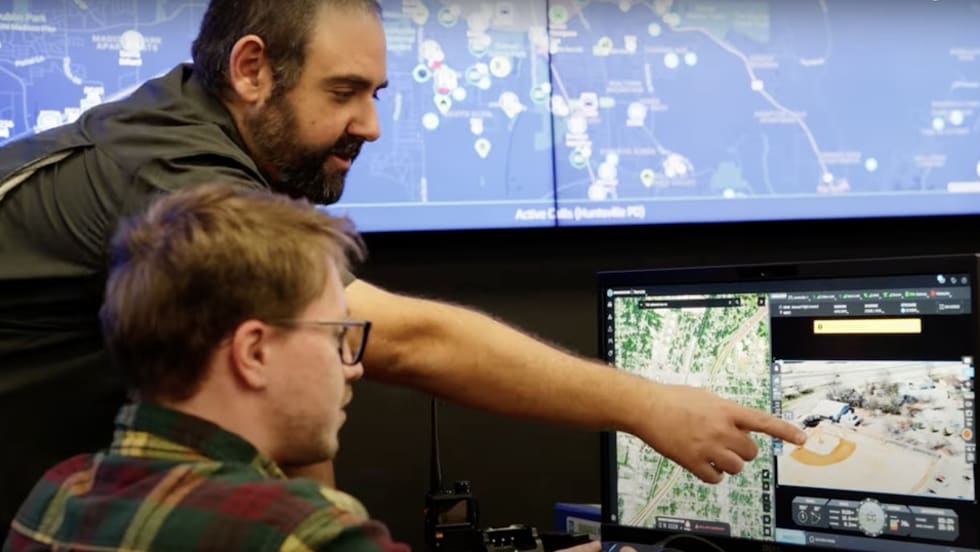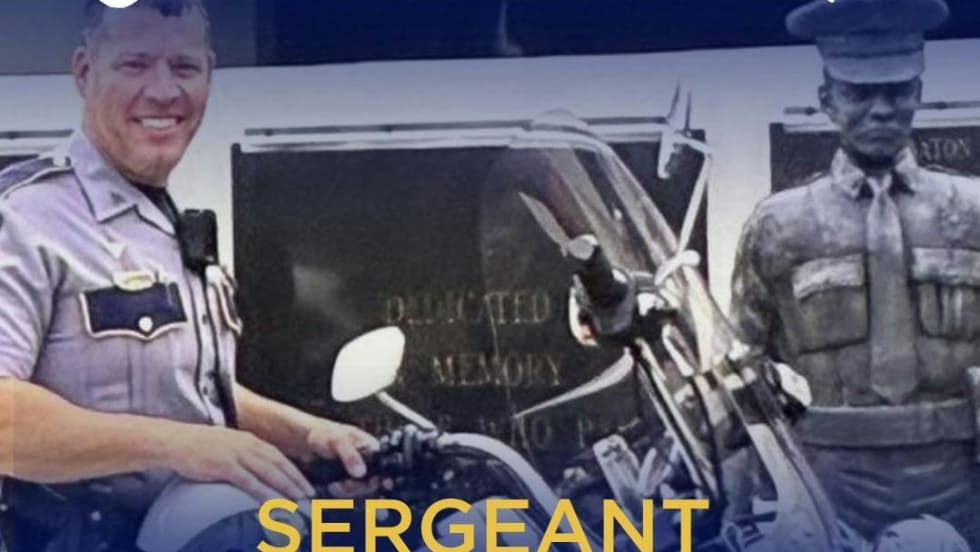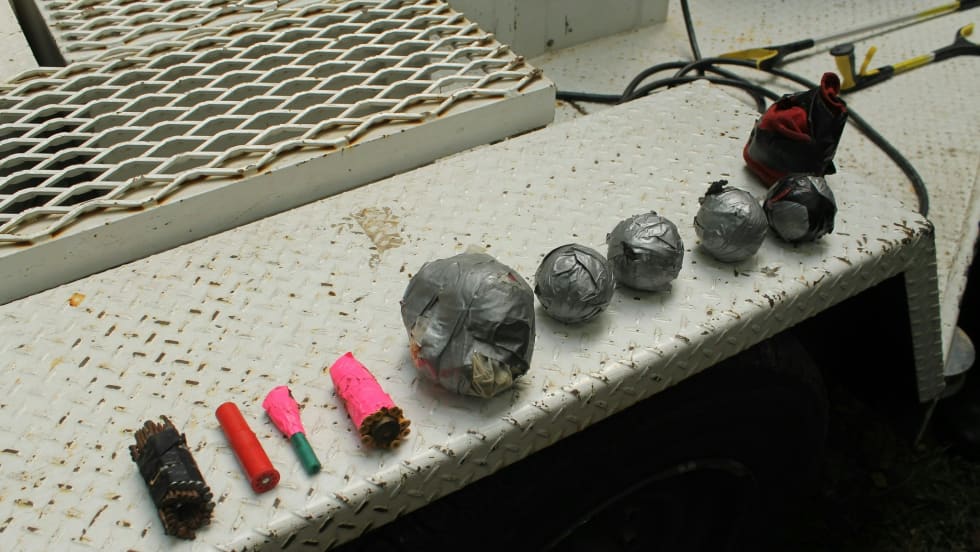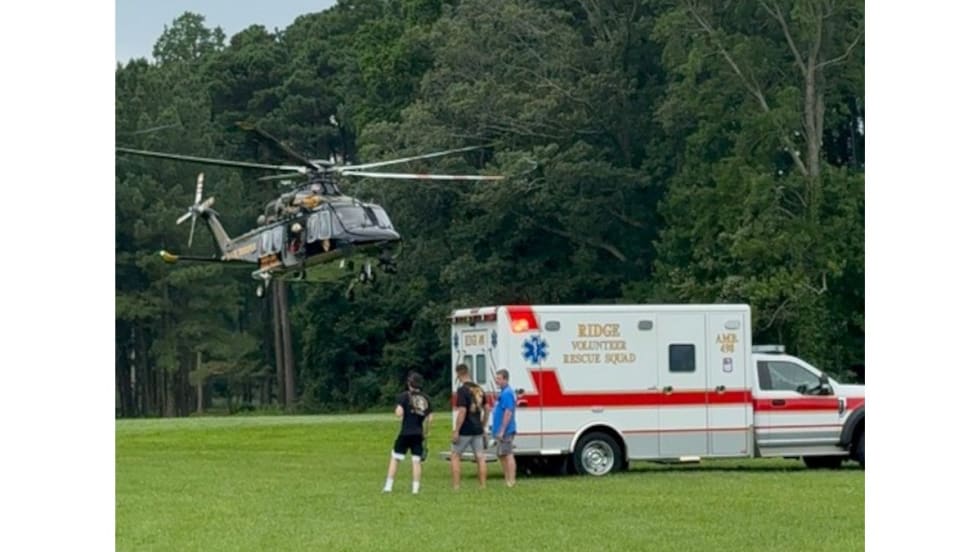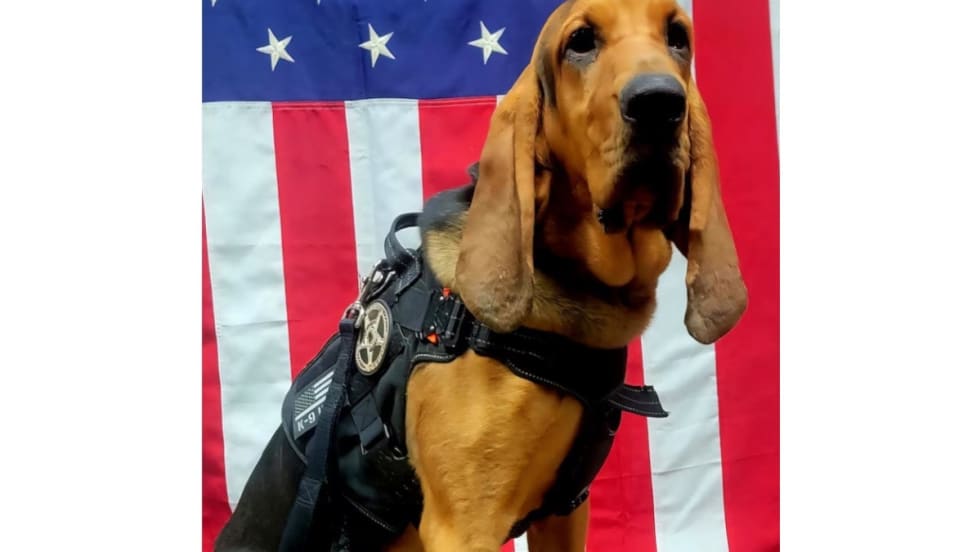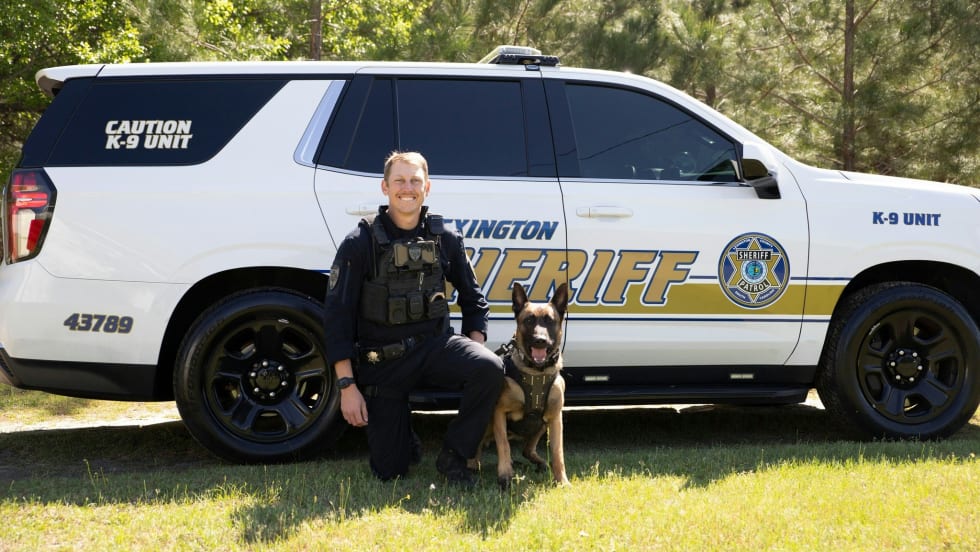Much is known about many of law enforcement’s special teams: dive team, air watch, SWAT. In contrast, the hazardous devices team of your department (if you have one) is one that has intentionally kept itself out of the limelight, for good reason.
Much is known about many of law enforcement’s special teams: dive team, air watch, SWAT. In contrast, the hazardous devices team of your department (if you have one) is one that has intentionally kept itself out of the limelight, for good reason.
Good reasons aside, it’s hard to get into a special team if you can’t find out anything about it. This article is here to help you as a general primer on what the bomb squad is about and what a prospective candidate might go through to be able to pin on the coveted “crab.”
In the United States, bombs are classed into ordnance (bombs that are built in factories) and Improvised Explosive Devices (bombs built by individuals). People that respond to, identify, and dispose of bombs are divided into three categories: military, public safety, and UXO.
UXO technicians (the acronym of UnExploded Ordnance) systematically search for and clear ordnance that is left behind on current and former government bomb ranges. Military EOD (Explosive Ordnance Disposal) technicians handle both IEDs and ordnance on Department of Defense property, and handle any ordnance found on non-DOD property.
Public safety bomb technicians handle IEDs that are found on non-Department of Defense property.
In addition to IEDs, public safety bomb technicians also routinely destroy old and unserviceable ammunition, commercial explosives, and fireworks. They investigate where explosions have occurred, prepare reports, and give testimony in court. Technicians also train fellow officers and the public on explosives recognition and response. They accompany other teams to search out and neutralize booby traps. Savvy departments also task them as the designated explosive breacher.
Common Misconceptions
One common misconception about the job of a bomb tech is that it centers around searching for bombs. While hazardous devices teams do conduct searches in areas where VIPs will be visiting, generally they don’t when responding to bomb threats. Simply put, it’s due to the fact that a technician has to view everything as suspicious until ruled out; a person familiar with the area can more easily spot things that are out of place, tampered with, or suspicious.
Another misconception is the Hollywood-fueled notion that technicians must “suit up and go downrange” on all suspicious items. While we can and do take this approach to threats, the preferred method is to accomplish the task as remotely as possible. In the same vein, we can also thank Hollywood for the concept some people have that somehow a red wire is always at the heart of a bomb trigger. Truthfully, some bombs can’t be disarmed by cutting a circuit or replacing a safety feature, and that’s when we have to get thoughtful and creative.
“Lumping” is yet another tendency that leads to confusion about a bomb tech’s job. Despite what many people believe, only bomb technicians are bomb technicians. Fireworks pyrotechnicians or special effects (sfx) crews are not. Neither are military engineers, civil demolitionists, explosive detection dog handlers, explosive breachers, explosive handlers, above- or below-ground miners, rock quarry blasters, explosive products salesmen, ammunition handlers (unless they are British), vulnerability analysts, or bombing scene investigators.
Honestly, there are many WMD people who are not bomb techs. Just because someone received some training at some point in explosives does not make him or her automatically capable or knowledgeable in the specialist field of rendering safe a bomb; something to think about the next time an “expert” comes up and offers to help you figure out what’s in the suspicious package that is holding up traffic.
It’s kind of like practicing medicine: never let a podiatrist stick his hands in your mouth; something is probably up that you will regret later.
Hazardous devices teams, formerly called bomb squads, can be found as parts of local, state, and federal law enforcement agencies. Less common are teams that are parts of fire departments and emergency management agencies.
All hazardous devices teams are becoming increasingly controlled by the FBI. While hazardous devices teams are primarily under the command and control of their agency, the FBI has an optional National Accreditation Program, and accredited hazardous devices teams benefit from free continuation training and equipment. In addition, accredited units can send new technicians to the FBI’s hazardous devices school located in Huntsville, Ala., at Redstone Arsenal.
What to Expect
So, what can you, the prospective technician candidate expect? First, most teams follow the FBI guidelines for candidate selection. You should have five years of experience in law enforcement and five continuous years at one agency. Even though most teams are part-time assignments, you need to have a full-time attitude and expectations. As a bomb tech, you can count on being called out at any time; off-days, weekends, and holidays are no exception.
Obviously, you have to volunteer for this assignment. Although the attrition rate is slightly growing due to retirements, there are no plans to start press gangs any time soon.
You should be in decent health and capable of operating under severe stress. Some of the job entails grunt work. Digging holes and carrying heavy tools are routine tasks. If you are prone to heat stress injuries or are claustrophobic, being a tech is not for you.
Also, if reading comprehension or interpreting diagrams is a stumbling block for you, this career path will prove to be very difficult.
Not required, but highly recommended, is an interest in gadgets, or how things work. People with an aptitude for handling mechanical or electronics generally fare well, but this ability isn’t mandatory. Neither, surprisingly, is a background in explosives.
Self-Evaluation
Before deciding to go ahead with becoming a bomb technician, you’ll have to honestly consider your personal compatibility with the work. This evaluation includes some aspects of the job that might not have occurred to you when first contemplating this career move.
Allergies—You may be allergic to explosives or materials involved.
Large debts—You may be required to obtain a national security clearance as part of your job. Large debts are a disqualifier, the rationale goes, because you may be at a greater risk to accept money for the classified data you will have access to.
Team spirit and loner behavior—Hazardous devices teams are teams made up of self-motivated individuals. You may spend a lot of time working alone or with a partner, but then you may have to function as part of a much larger group. You should be able to work as a team, but be self-starting as well. [PAGEBREAK]
Military service—If you are still in the Reserves or National Guard, you may be subject to call-up. Your agency may not want to spend two years training you only to lose you to an activation.
Traveling—In addition to out-of-town trips for training, if something large or national occurs, you may be asked to go and help. If you are the type that doesn’t like to be separated from your family for any period of time, this isn’t going to be a good career for you.
Ticket punching—Some people are badge collectors and want to spend a little time on every team possible. This is NOT a dig at other special teams by any means, but bomb disposal is a long-term avocation, not a resume pad or passing interest.
When conducting a self-assessment, the main drives you should have for tackling this job are a genuine interest in explosives disposal and a good supply of patience.
If accepted, you will not be the one in the suit for some time. You will be learning the craft through studying, training, and assisting. Only when your peers are confident in you and your abilities will you get to be the p1—the primary—on a bomb call.
Getting In
Once you’ve talked it over with your family, read this article, and made your decision, the next step is to find out what your local team is doing. The majority of technicians stay with the program until retirement, so there might not be an opening for you. But don’t give up. As with anything worthwhile, persistence pays off.
Honestly, besides maintaining physical fitness, there really isn’t much you can do to improve your odds. The one thing that could tip the scales in your favor is already being a hazardous materials technician, due to the increased interest in weapons of mass destruction. One thing that surprisingly won’t give you an edge is prior military service as an EOD tech.
Once an opening finally arrives, most teams will hold a tryout to begin the weeding out process. They may put you in a bomb suit and have you carry some simulated equipment a distance. A surprising number of people can’t deal with the hot, heavy, confining ensemble. Did I mention hot?
The process differs among teams at this point. But the next step is generally a review board. The board, comprised of current team members, will have already talked to your patrol supervisor and some of your shiftmates to see what they think of you. You can expect to be asked about what would motivate you to run toward a bomb when everybody else is running away.
Once the interviews are done, they will make their selection. Hopefully, you’ll be the one.
Working as a bomb technician can be a very rewarding and fulfilling experience. The risks are great, the hours even longer than being a patrolman. But it is a pivotal role in the war on terrorism, and a guaranteed front–row seat to some of the most secretive and interesting training and incidents you can ever be a part of. It’s a tremendous challenge to stare down a live bomb, and not for everyone. But, it may be the job for you.
Shawn Hughes is a veteran patrol officer and bomb technician who now consults for various agencies and private corporations when he isn’t writing or teaching. He is a frequent contributor to Police and his new book on security vulnerabilities is due out soon.
Why Would You Want This Job?
Most special law enforcement teams incur an added risk above and beyond patrol, corrections, or administrative work. But some teams are more risky than others. Why volunteer for a position that has a guaranteed chance of coming nose to nose with a live, armed destructive device?
Of the select few who do (the numbers are kept intentionally hazy but hover in the very low thousands), there are a few reasons, but the biggest is temperament. Bomb disposal is an avocation with a calling, much like a religious or a medical career path. Believe it or not, there are more than a few people who truly enjoy working around and with hazardous devices.
A close second reason for becoming a bomb tech is being incurably curious. A bomb incident is the ultimate puzzle. Your job is to take something that you can’t see inside, can’t really move or touch, and make several important decisions.
• What’s in it?
• Is it dangerous?
• If it is, how does it work?
• How can you make it not work anymore with the least amount of damage practical?
• Why is it here?
• Who made it? (If you’re really good.)
If you are wrong, the penalty can occasionally be your death. Accepting the challenge and succeeding is tremendously rewarding and, truth be told, a bit of a rush. People most commonly associate bomb disposal with the suit and blowing some package up, but that really is the end of the “game.” The majority of the job is a mental challenge: figuring, calculating, estimating, comparing.
Another reason people become bomb techs is for the perks. An increasing number of agencies offer hazardous duty pay and on-call pay to bomb technicians. Technicians get more opportunities to go to schools and conferences. They are also usually included on any major operation or incident. This means high-profile cases and VIP details. Most technicians get take-home vehicles and a greater clothing allowance to purchase hazardous devices team uniforms and accessories. And, because of the qualities that make a good bomb technician, techs occasionally enjoy an edge in promotions and assignments.
Offsetting these reasons for being a bomb tech are the negatives. Increased time away from family and loved ones; increased risk of cardiovascular and nervous system damage; and increased opportunity for personal financial loss, personal injury, death, or the injury and death of those around you due to a single “oops” are the top issues.
Also, a rigorous selection and training regimen wash many out.
For these reasons, the number of bomb technicians and teams world-wide are low, but remain one of the best and most proficient special teams in law enforcement.


